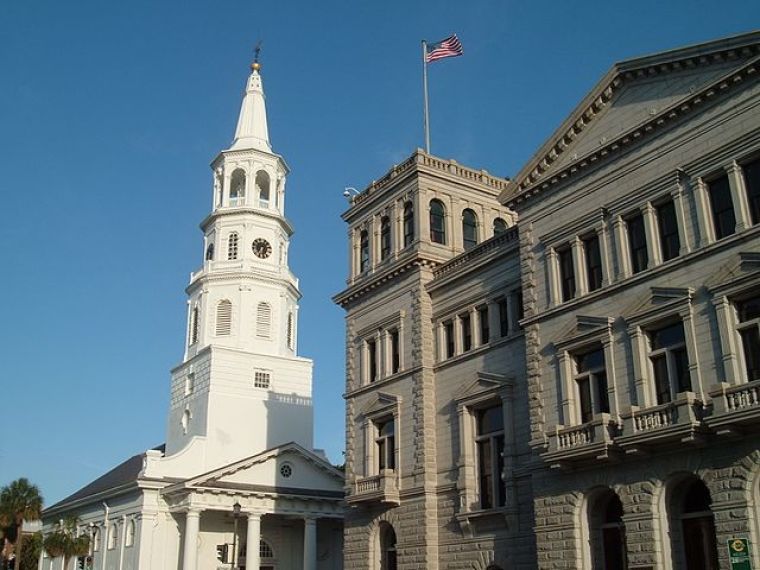Supreme Court declines to hear appeal of South Carolina churches that broke away from Episcopalian church

The U.S. Supreme Court has refused to hear a case involving a group of churches seeking to keep $500 million worth of property in South Carolina after breaking away from the wider Episcopalian church.
In a petition filed in February, the breakaway group, which refers to itself as the Diocese of South Carolina, asked the high court to consider "whether the 'neutral principles of law' approach to resolving church property disputes requires courts to recognize a trust on church property even if the alleged trust does not comply with the state's ordinary trust and property law," according to Episcopal News Service.
The case was discussed by the justices at a conference on June 7, before it was rejected without comment on June 11.
The Diocese of South Carolina had decided to leave the Episcopalian Church due to disagreements about biblical authority, theology and inclusion of LGBT individuals in the church.
In 2013, the group filed a lawsuit in an effort to settle the dispute about ownership of 29 church properties.
A Dorchester County court ruled in favor of the Diocese of South Carolina in 2015, but the decision was overturned by the state Supreme Court in August last year.
The church properties, which were valued at around $500 million, include the St. Michael's Church and St. Philip's Church in downtown Charleston, as well as the Camp St. Christopher on Seabrook Island.
The 2017 decision had allowed seven breakaway churches to keep their property because they did not agree to the Episcopalian canon.
Diocesan Chancellor Thomas S. Tisdale Jr. noted that the U.S. Supreme Court decision does not automatically grant the Episcopalian Church the physical control of the diocesan properties. The ruling must still be enforced by the state court, he said.
The high court ruling has been hailed by Episcopal Church in South Carolina Bishop Provisional Gladstone B. Adams III.
"We are grateful for the clarity that this decision offers, and hopeful that it brings all of us closer to having real conversations on how we can bring healing and reconciliation to the church, the body of Christ, in this part of South Carolina," Adams said, as reported by Episcopal News Service.
"Our path continues to be one of reconciliation and love, for love is the way of Jesus," he went on to say.
The Diocese of South Carolina said that it will continue to pursue the case in courts. "The diocese remains confident that the law and the facts of this case favor our congregations," the group said in a statement, as reported by Episcopal News Service.
 Christians don't have to affirm transgenderism, but they can’t express that view at work: tribunal
Christians don't have to affirm transgenderism, but they can’t express that view at work: tribunal Archaeology discovery: Medieval Christian prayer beads found on Holy Island
Archaeology discovery: Medieval Christian prayer beads found on Holy Island Presbyterian Church in America votes to leave National Association of Evangelicals
Presbyterian Church in America votes to leave National Association of Evangelicals Over 50 killed in 'vile and satanic' attack at Nigerian church on Pentecost Sunday
Over 50 killed in 'vile and satanic' attack at Nigerian church on Pentecost Sunday Ukrainian Orthodox Church severs ties with Moscow over Patriarch Kirill's support for Putin's war
Ukrainian Orthodox Church severs ties with Moscow over Patriarch Kirill's support for Putin's war Islamic State kills 20 Nigerian Christians as revenge for US airstrike
Islamic State kills 20 Nigerian Christians as revenge for US airstrike Man who served 33 years in prison for murder leads inmates to Christ
Man who served 33 years in prison for murder leads inmates to Christ


 Nigerian student beaten to death, body burned over ‘blasphemous’ WhatsApp message
Nigerian student beaten to death, body burned over ‘blasphemous’ WhatsApp message 'A new low': World reacts after Hong Kong arrests 90-year-old Cardinal Joseph Zen
'A new low': World reacts after Hong Kong arrests 90-year-old Cardinal Joseph Zen Iran sentences Christian man to 10 years in prison for hosting house church worship gathering
Iran sentences Christian man to 10 years in prison for hosting house church worship gathering French Guyana: Pastor shot dead, church set on fire after meeting delegation of Evangelicals
French Guyana: Pastor shot dead, church set on fire after meeting delegation of Evangelicals ‘Talking Jesus’ report finds only 6% of UK adults identify as practicing Christians
‘Talking Jesus’ report finds only 6% of UK adults identify as practicing Christians Mission Eurasia ministry center blown up in Ukraine, hundreds of Bibles destroyed: 'God will provide'
Mission Eurasia ministry center blown up in Ukraine, hundreds of Bibles destroyed: 'God will provide' Church holds service for first time after ISIS desecrated it 8 years ago
Church holds service for first time after ISIS desecrated it 8 years ago Burger King apologizes for 'offensive campaign' using Jesus' words at the Last Supper
Burger King apologizes for 'offensive campaign' using Jesus' words at the Last Supper Uganda: Muslims abduct teacher, burn him inside mosque for praying in Christ’s name
Uganda: Muslims abduct teacher, burn him inside mosque for praying in Christ’s name